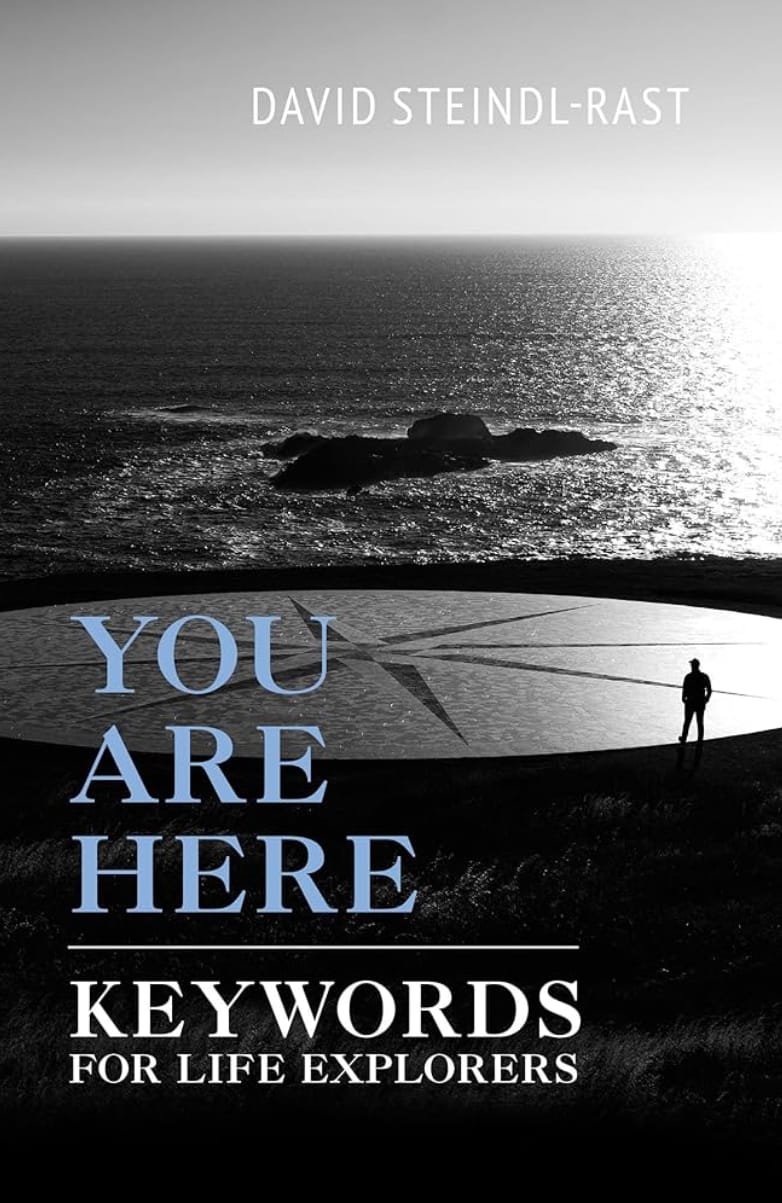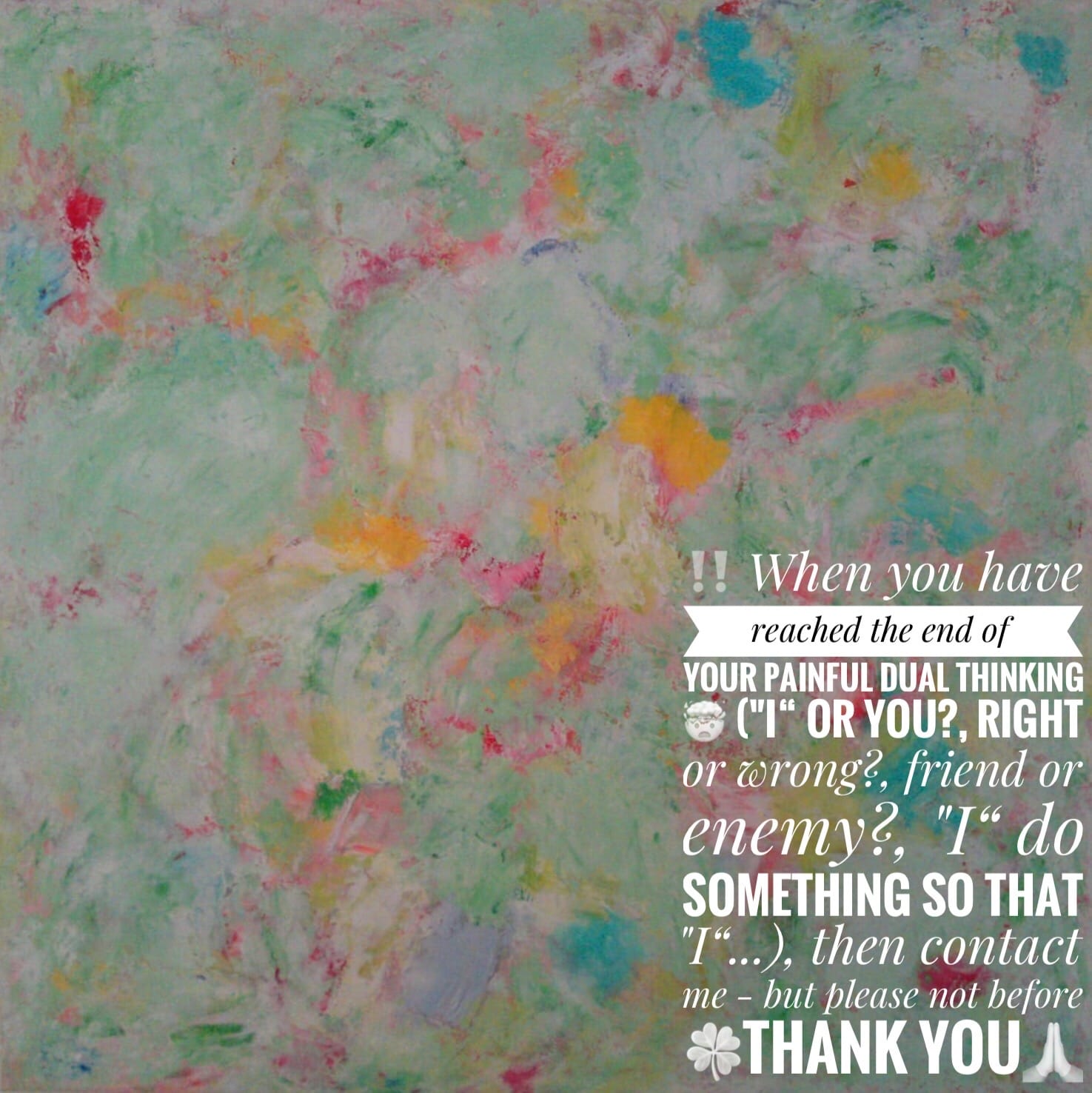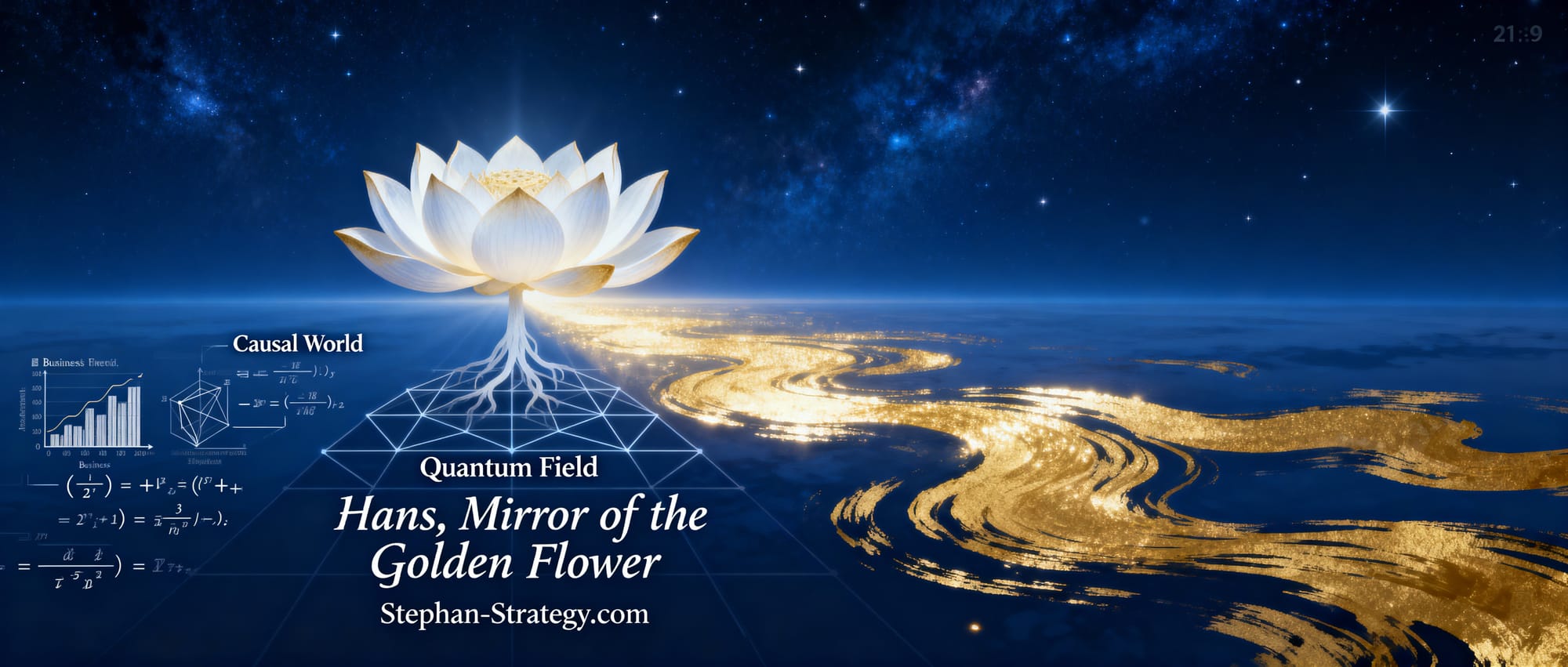Inter-independence BEYOND independence🛜💫
The newly evolving consciousness makes it inevitable to replace the power pyramid with the network in every field of human activity. Raimon Panikkar speaks of "inter-independence" as the goal.

"Ethics is more important than religion."
His Holiness the 14th Dalai Lama
"Maybe the religions we know have run their course and are even on their way out-largely because they divided us—and we will have to replace them by a universally valid ethics—what we've called religiousness—that unites us. A sober look at our world makes me take this possibility seriously. In this case, however, I would have to change each of the three reasons I gave for the importance of religion.
- To many of my friends and, in my saddest hours, to myself, some religions (at least), have become so infested by The System that there is no cure for them. In those cases, self-serving interests prevent their members from even thirsting for the living waters of the original message. This is not true for me personally. I stand within the Catholic Christianity that has nurtured me throughout my life, but I can see that only a dwindling number of young people find it nourishing anymore.
- While I am still convinced that religions can give much support to children, providing what they need as they grow up, religious education in practice often insists on teachings that do the opposite, inciting guilt feelings, fear, and aggression in children.
- Too often religions fall into dogmatism, moralism, and ritualism, generating a deep confusion in the hearts of their followers, diverting them from their inner sense of Mystery. And not enough people have the strength to heal these evils by the religion of the heart.
If this amounts to saying that we do not need religion but our inborn ethics will suffice, this answer leaves us with an even more difficult question: how are we to give concrete form to our inner ethics the way religions give concrete form to our religiousness? If, indeed, we are witnessing the demise of the traditional religions, who will create teachings, morals, and rituals to express universal ethics? And will one form of expression be able to serve the multitude of cultures in the world? If we define religion as a way to understand, to behave, and to celebrate the Mystery of Life, there will always be religion. The transition from hunter-gatherer cultures to agriculture triggered the first beginnings of today's great religions. Today we are witnessing a similarly dramatic transition. My whole heart goes out to the children who will have to find their way through these upheavals. For the moment, lucky are the ones who can still make the best of one of the old traditions.
Could it be that most religions as we know them are in crisis because their organizational structure is the pyramid, and the newly evolving consciousness makes it inevitable to replace the power pyramid with the network in every field of human activity?
Our future, if we are to have one, will have to be in tune with nature, and nature is a network of networks. Every communal structure must be able to maintain the tension between personal independence and communal bonding—
Raimon Panikkar speaks of "inter-independence" as the goal.
The pyramid proved unable to achieve this goal. We will have to make every effort for the networks will succeed in this task. Maybe even the legitimate claims of any religion on its members' loyalty have necessarily a tinge of totalitarianism and therefore can hardly escape abuse. In every religion, countless faithful members have managed to navigate these dangerous waters successfully. Maybe it will always remain an inherent challenge of membership in a religion to be aware of this danger and surmount it through our personal relationship with Mystery. With regard to the future of Christianity,…
Karl Rahner said, "The Christian of the future will be a mystic, or he will not exist at all," and this will apply to any religion.
When we are using the map provided by one of the traditional religions and its meaning dawns on us, our heart begins to resonate with the heart of Mystery, and we want to cry out, "This is it!" This aha moment is what our spiritual journey is all about, and it is what religions are all about: the quest for meaning. We spoke already about the process of finding meaning through the three existential questions. The "why" leads us into the bottomless silence of Mystery; through "what," we come to recognize everything, there is as a word that Mystery addresses to us; and "how" reaches out toward understanding Mystery by doing. Summing this up, by a formula we have used before, we can say that we find meaning by listening to the word in whatever form, so deeply that it takes hold of us, leads us to obedient action, and thus, through understanding-by-doing, brings us into a new level of the silence out of which it came.
In the various expressions of religiousness that we call Indigenous religions these three elements were not yet clearly differentiated. From our present-day perspective, they appear to us to express human religiousness in a more balanced way. That could be the reason why so many people today feel particularly attracted to the spirituality of Indigenous religions. An additional reason is that our sense of justice revolts against the violation and destruction of Indigenous religions by colonialism. It is an encouraging fact that these ancient traditions with their deep wisdom are coming to new life in many places today and are teaching us a new reverence for nature and for feminine motherly values.
Religion wants to lead religiousness to the joyful outcry, "This is it!" Among the world's great religions, Buddhism typically zeroes in on silence; the Amen-Traditions of the West are concerned with the Word; Hinduism centers on understanding-all forms of yoga yoking together word and silence. Either one of the three can trigger our "This is it!" We in the West go from one word to another, calling out excitedly, "This is it—and this and this and this!" A Buddhist, focused on the one silent Source of all, may put the emphasis on, "This is it!" But since meaning is found in both word and silence, we may imagine a Hindu emphasizing the understanding that links the two together and exclaiming,
"This is it!"
Source: David Steindl-Rast "YOU ARE HERE - Keywords for Life Explorers“ pages 54-57.

You would like to SUPPORT my free VISUAL COACHING inspirations once: 👉 Donation link
- DONATIONS support in particular my career & life strategy coaching for young people with naturally very limited financial resources - in recent years I have coached over 350 such life strategies 👉 Link
- Why donate? My visual gift is a completely automatic process beyond dual thinking. This means that the visual solution flows into me without my own conscious intervention - it is not "work" for me, I only act as a medium between the inexhaustible potential of the quantum field (see Harvard bestseller on this: 👉 Link) and the manifestation in the very limited section of reality that we can perceive with our rudimentary 5 human senses: 👉 Link
